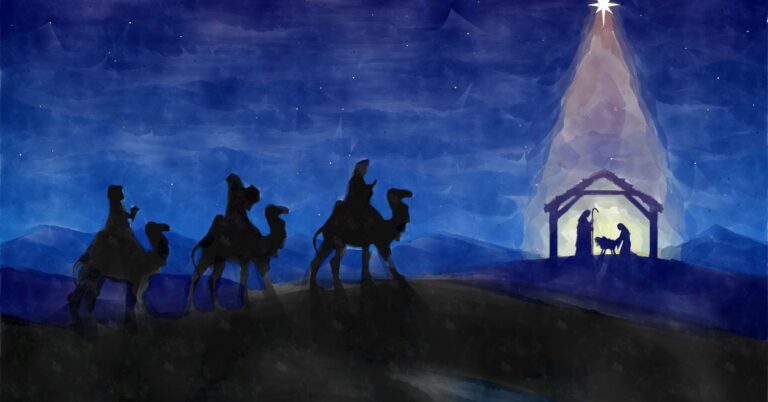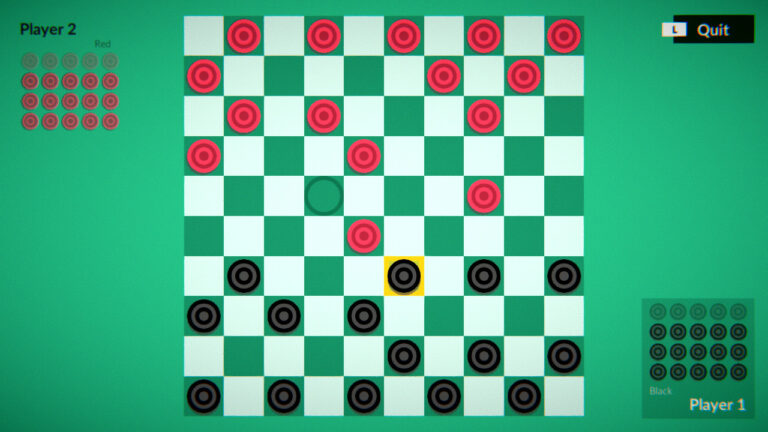The story of the three wise men, or Magi, presenting gifts to the newborn Jesus is one of the most iconic and symbolic moments in the Christian narrative. But beyond the imagery of these men journeying from the East to pay homage to the infant, there lies a deep-seated symbolism in each of the three gifts they brought.
Through this exploration, we’ll discuss the significance of gold, frankincense, and myrrh in historical, spiritual, and cultural contexts.
Gold: A Gift Fit for a King
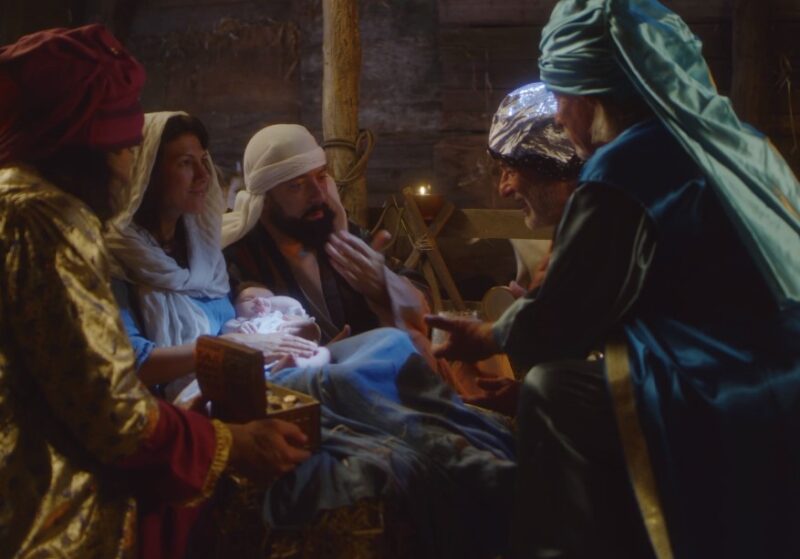
Gold, universally recognized as a valuable commodity, has always been associated with royalty and deity. The offering of gold to the baby Jesus carries a wealth of symbolism.
The Value and Prestige of Gold
Gold’s lustrous yellow sheen and its rarity have made it a coveted item since ancient times. Civilizations from every corner of the globe, from the ancient Egyptians to the Inca, have treasured gold, using it to craft jewelry, coins, and even tombs for the departed.
- Universality: Gold’s value is recognized universally across cultures. Its presentation to Jesus acknowledges his universal significance and sovereignty.
- Durability: Gold doesn’t tarnish or corrode, symbolizing the everlasting nature of Jesus’ kingdom and the enduring quality of his teachings.
Gold and Its Royal Connotations
Throughout history, gold has been the reserve of kings, emperors, and rulers. When the wise men presented gold to Jesus, they were acknowledging his kingship not just over one domain but over all of humanity.
- Recognition of Divinity: By gifting gold, the Magi recognized Jesus as the “King of Kings.”
- Link to Prophecies: The Old Testament frequently alludes to a forthcoming Messiah who would rule and reign. The gift of gold serves as a tangible link to these prophecies, affirming their fulfillment in Jesus.
Frankincense: An Offering of Divinity
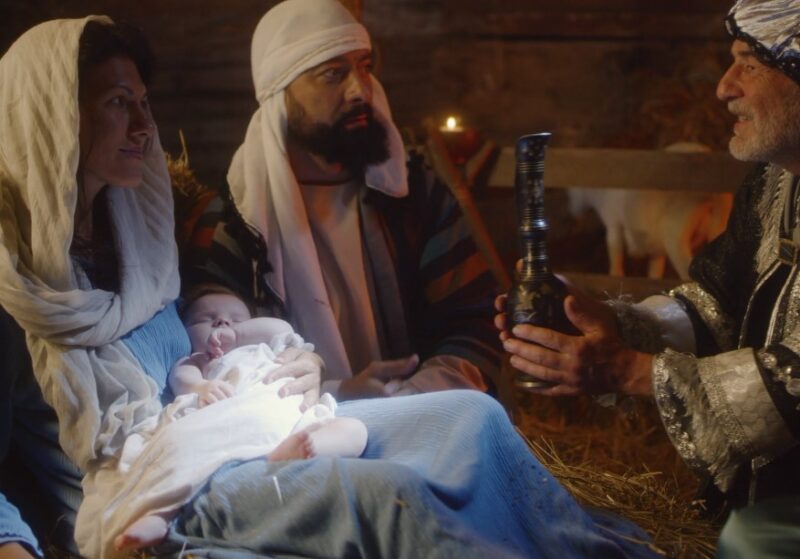
Frankincense, a fragrant gum resin obtained from certain trees, has been used in religious rituals and as a perfume. The gift of frankincense to Jesus indicates his divine nature and purpose.
Frankincense in Ancient Rituals
Frankincense has played a central role in religious ceremonies for millennia. Its fragrant smoke is said to carry prayers to the heavens, bridging the gap between the human and the divine.
- Sacred Symbolism: Used in temple sacrifices, frankincense represented a connection to the divine. Its gift to Jesus symbolized the recognition of his sacred purpose.
- Spiritual Elevation: The rising smoke of burning frankincense has often been equated with the soul’s journey towards divine realms. This mirrors the Christian belief in Jesus as the mediator between God and man. There are other rituals that are common even today, like the one where the Jesus is symbolized through the bread and wine.
Frankincense and Jesus’ Priestly Role
The gift of frankincense not only emphasized Jesus’ divinity but also foreshadowed his role as the ultimate high priest, who would act as an intermediary between humanity and God.
- An Everlasting Intercessor: Just as frankincense played a role in religious rituals, Jesus is seen in Christianity as the one who intercedes for humanity.
- Sacrificial Love: The use of frankincense in sacrifices underscores Jesus’ ultimate sacrifice on the cross for mankind’s sins.
Myrrh: A Symbol of Suffering and Mortality
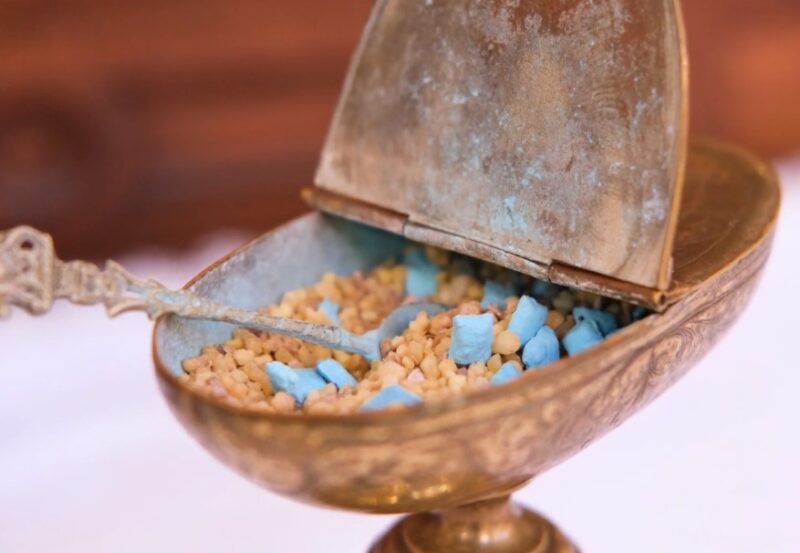
Myrrh, another resin like frankincense, has had various uses, including in medicine and embalming. The gift of myrrh to Jesus foreshadowed his eventual suffering and death.
Historical Uses
While myrrh has been utilized as a perfume and healing agent, its most poignant use in the context of Jesus’ story is its application in embalming and burial practices.
- Foretelling of Passion: Myrrh’s association with death hints at Jesus’ eventual crucifixion and burial.
- The Humanity of Jesus: While gold and frankincense emphasize Jesus’ kingship and divinity, myrrh underlines his human experience, including suffering and death.
The Dual Nature of Myrrh
Interestingly, while myrrh denotes suffering, it’s also been associated with healing, representing the duality of Jesus’ role as both a sufferer and a healer.
- Redemptive Suffering: Through his suffering, Christians believe that Jesus achieved redemption for mankind.
- Healing for Humanity: Myrrh’s medicinal properties symbolize Jesus’ healing touch, mending the spiritual ailments of humanity.
A Deeper Reflection on the Gifts
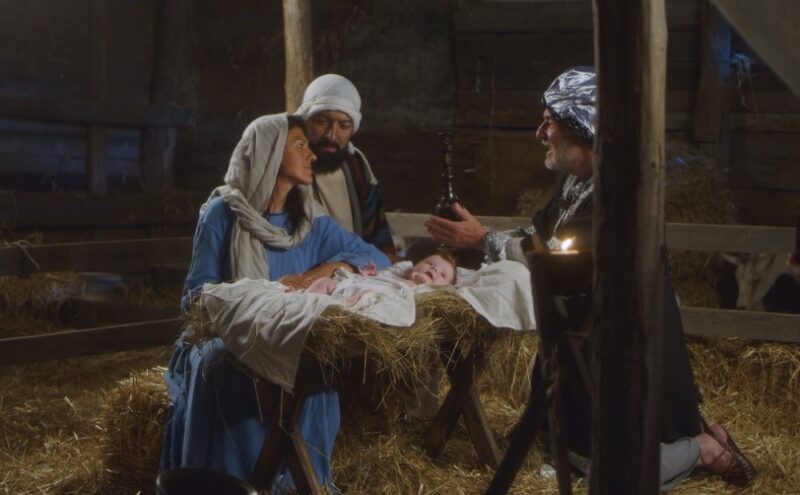
Beyond the immediate symbolism of the three gifts lies a deeper, layered understanding. Each of these gifts, in its essence, tells a distinct narrative of Jesus’ journey and the broader implications for humanity.
A Precursor to Modern Celebrations
Today, the act of giving during Christmas has become a central theme in many cultures. The Magi’s gifts can be seen as the genesis of this tradition.
- Origins of Gift-Giving: The act of the Magi presenting gifts sets the tone for the Christmas gift-giving tradition, emphasizing the essence of love, recognition, and reverence.
- Selfless Generosity: Their journey, filled with challenges, to present their gifts to Jesus, underscores the importance of selflessness in acts of love.
An Invitation for Introspection
The gifts are not just offerings to Jesus but are symbolic gestures that invite us to reflect on our own lives and faith.
- Understanding Royalty: Just as gold demands an appreciation of Jesus’ kingship, it encourages believers to recognize and revere the divine royalty in their lives.
- Pursuit of the Divine: Frankincense, with its ethereal connections, beckons individuals to cultivate a deeper spiritual connection, bridging the human experience with the quest for the divine.
- Embracing Life’s Dualities: Myrrh, with its associations of both suffering and healing, encourages an acceptance of life’s dualities, finding purpose and growth in challenges.
A Timeless Tale of Recognition and Reverence
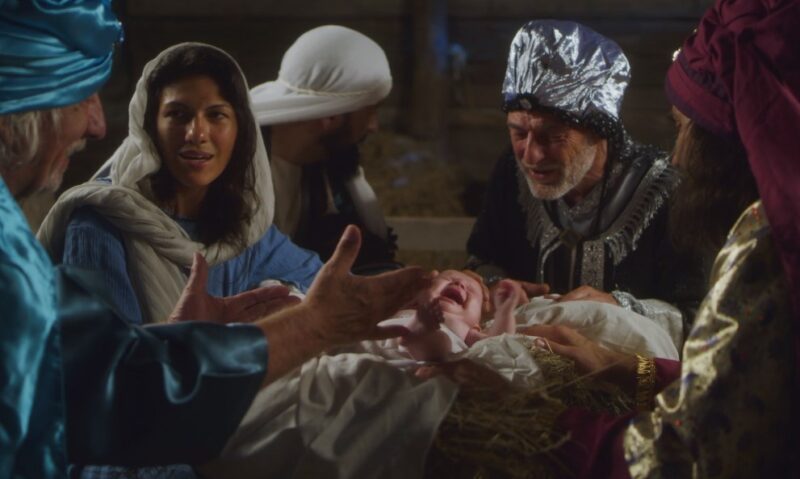
The gifts of the Magi stand as a testament to time, resonating with generations across millennia. Their offerings underscore a universal theme of understanding, love, and reverence.
A Universal Acknowledgment
The act of the Magi, foreign wise men from the East, recognizing and honoring Jesus, indicates a universal acknowledgment of his significance.
- Bridging Cultures: Their journey highlights the idea that the message of Jesus transcends cultural and geographical boundaries.
- Faith Beyond Borders: The Magi’s faith exemplifies that divine recognition isn’t limited to any particular tribe, nation, or people but is a universal call.
Influence on Art and Culture
The episode of the Magi’s visitation has profoundly influenced art, music, and literature, underscoring its lasting cultural significance.
- Artistic Representations: From Renaissance paintings to modern depictions, the Magi’s scene has been a favored subject, encapsulating the themes of recognition, journey, and divine revelation.
- Literary Echoes: Literature across ages has borrowed themes from this narrative, using it as a metaphor for search, recognition, and enlightenment.
FAQs
How did the wise men know about the significance of their gifts to Jesus?
The Bible does not provide explicit details about how the Magi knew the specific significance of each gift. However, it’s speculated that their knowledge of ancient prophecies and their deep understanding of symbolism, combined with their own spiritual insights, might have guided their choice of gifts.
Were the wise men kings themselves, as sometimes depicted in popular culture?
The Bible refers to the visitors as “Magi,” which suggests they were wise men, scholars, or astrologers rather than kings. The idea of them being kings may have evolved from prophecies in the Old Testament that spoke of kings bringing gifts to the Messiah. Over time, and with the influence of songs like “We Three Kings,” the popular image of them as royalty has persisted.
How did the wise men know where to find Jesus?
The Bible says that the Magi followed a star which they believed announced the birth of the “king of the Jews.” This star led them to Jerusalem and, eventually, to Bethlehem, where they found Jesus. The exact nature and origin of this star remain subjects of debate among theologians and astronomers.
Why did the wise men visit King Herod if they were looking for Jesus?
When the Magi arrived in Jerusalem, they naturally went to the palace, thinking that’s where a newborn king would be. They asked King Herod about the “one who has been born king of the Jews.” This alarmed Herod, and he gathered chief priests and scribes to find out where the Messiah was to be born. They quoted the prophecy pointing to Bethlehem.
Are there other biblical references to gold, frankincense, and myrrh outside of the nativity story?
Yes. For instance, gold is frequently mentioned throughout the Bible, symbolizing wealth, divinity, and purity. Frankincense, meanwhile, is noted in the Old Testament, especially in the context of temple sacrifices. Myrrh is mentioned multiple times, notably in the Song of Solomon for its perfume and in the Gospel of John, where it was used for Jesus’ burial.
Are the exact identities of the wise men known?
The Bible does not provide names or specific details about the individual identities of the wise men. Over time, traditions and legends have ascribed their names and backgrounds, such as Caspar, Melchior, and Balthazar, representing different regions of the world. However, these details are not found in the biblical account and are considered extra-biblical traditions.
Final Words
The three gifts of the Magi are laden with symbolism that spans the realms of royalty, divinity, and humanity. These gifts, chosen with profound intent, encapsulate the multifaceted nature of Jesus’ mission and purpose on earth, offering a glimpse into the understanding and recognition of his identity even in his infancy.

